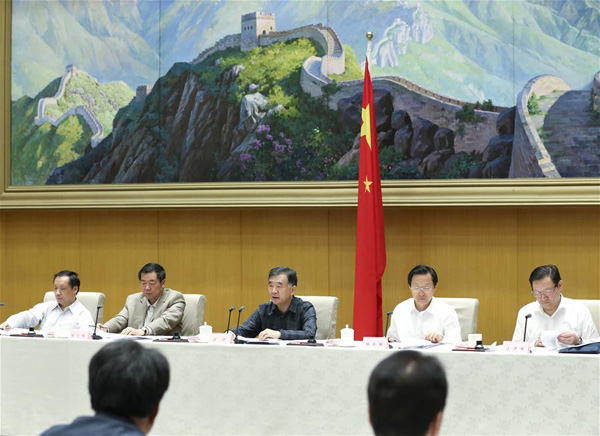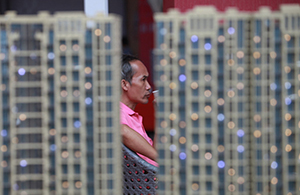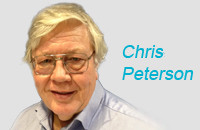Official misappropriating funds for poverty relief must be punished
(China Daily) Updated: 2016-07-01 07:55
 |
|
Chinese Vice Premier Wang Yang (Center) speaks at a national poverty reduction teleconference in Beijing, capital of China, May 23, 2016. Wang Yang said Monday that China aims to lift more than 30 million rural residents out of poverty from 2016 to 2020 through industrial development. [Xinhua/Pang Xinglei] |
ON WEDNESDAY, the National Audit Office reported to the Standing Committee of the National People's Congress, China's top legislature, that local governments had misappropriated 151 million yuan ($22.75 million) of poverty alleviation funds and wasted another 870 million yuan. Beijing Times comments:
By setting up the national poverty alleviation fund with taxpayers' money, the central government wanted to help the poorest members of society and share the prosperity of the nation. By doing so, it is helping the rest of society, too, because crime rates will rise if social gaps continue widening.
That's why the local government officials that embezzle or misuse these funds cause serious negative effects. When they embezzle and waste millions of yuan, that means millions of poor people are deprived of the hope of changing their situation for the better.
For the past three decades, over 700 million people have been lifted out of poverty, and the poverty alleviation funds that come from taxpayers have played a major role in the process. The next step of the plan, according to the top leadership, is to lift all the remaining 70 million poor people out of poverty by 2020. However, if local government officials continue misappropriating the money, that will hinder achieving this goal.
Past reports show that local officials embezzle poverty alleviation money in several artful ways. For example, when the State allocates the fund to a certain city for poverty alleviation, each level of officials keeps a certain amount for their own use, and only a limited part truly goes to the poor people that need it. This is corruption and the officials deserve getting punished for their illegal deeds.
That should remind us to not only strengthen the auditing of governments, but also be creative in allocating the funds. For example, the fund should be given directly to the poor families, instead of the officials, so as to leave less space for corruption.












